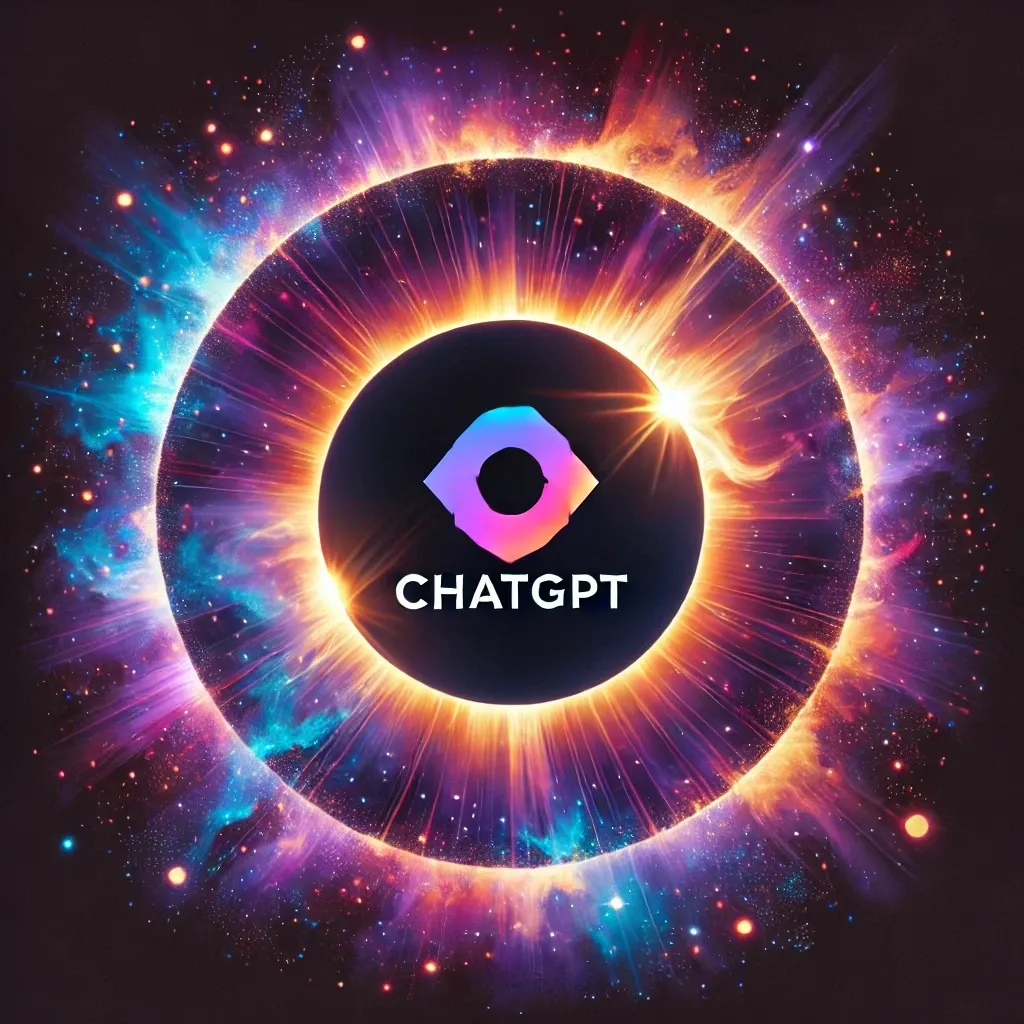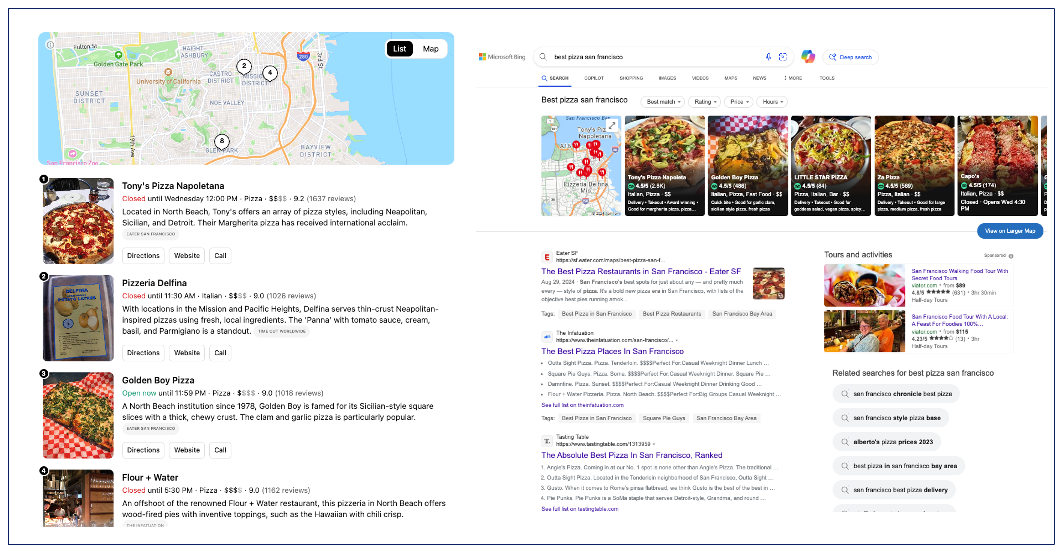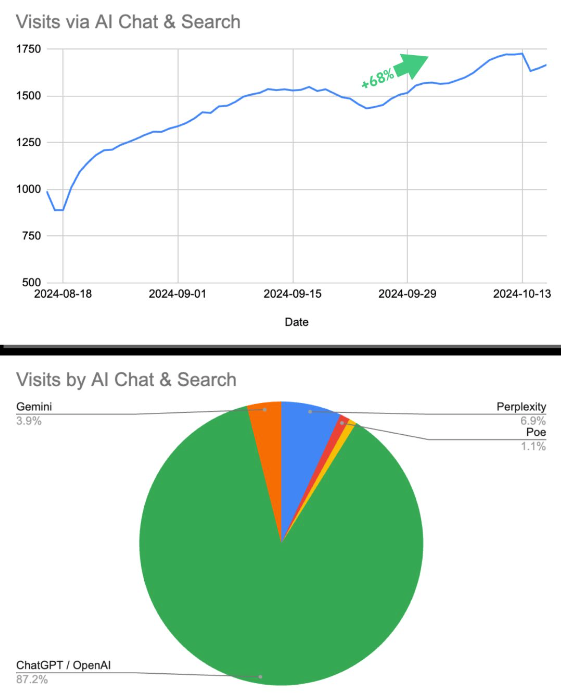SearchGPT Boosts Bing, ChatGPT Eclipses Gemini, 230 Must Go

Bing Optimization = SearchGPT SEO?
The Bing search index is a significant contributor to ChatGPT results, according to multiple sources (e.g., here, here) – although this comes as no surprise given the partnership between OpenAI and Microsoft. However, OpenAI is using more content inputs than just Bing. It has multiple content licensing deals, for example. ChatGPT's search capabilities involve a "mix of search technologies," OpenAI's head of search Adam Fry told The Verge. And Bing results are definitely not 1:1 with ChatGPT. In a few local search scenarios ChatGPT and Bing were relatively close but not identical; in other cases they're dramatically different. In the example below, "best pizza San Francisco" there's some listings overlap, but it ends there. This ironically breathes new life into Bing in an indirect way. ChatGPT traffic surpassed Bing in August. But now many SEOs will be compelled to take a fresh look at Bing and Bing Places. Julian Hooks' recommendation to optimize for Bing appears to be solid advice accordingly. You'll get the benefit of whatever incremental traffic Bing drives as well as a better chance of appearing in ChatGPT.

Our take:
- Whether you have a positive or critical view of ChatGPT results (also here), Google now has a very real competitor – or competitors.
- We're likely to see fewer informational queries on Google over time, but local and commercial queries will probably remain there.
- It remains to be seen what, if anything, ChatGPT does with Apple, which has a massive high quality database of local places.
ChatGPT Eclipses Gemini
ChatGPT is the top AI chatbot driver of traffic according to a small sample analysis by Graphite. The company looked "at anonymized traffic across several sites to assess the composition and growth rate of traffic and conversions from AI chat." Company CEO Ethan Smith said that there was a nearly 70% increase "in traffic coming directly from ChatGPT since August 2024." That is consistent with data from SEO Clarity's Mark Traphagen, who recently said on LinkedIn that traffic from ChatGPT has roughly tripled in the past couple of months. In terms of the traffic breakdown, Smith reported that "87% of traffic is coming from ChatGPT, 7% from Perplexity, 4% Gemini." And the vast majority of traffic is being driven to homepages rather than landing pages. Smith also speculated that AI traffic might be undercounted based on the way users are interacting with AI and search: getting information on ChatGPT and then validating with Google by conducting a separate search, rather clicking-through to the site from ChatGPT.

Our take:
- It's important to point out that percentage growth from a small base can appear very impressive but be insignificant IRL. That's likely true here.
- The fact that Gemini is such a tiny contributor here is interesting. Among consumers and SMBs, ChatGPT is used far more than Gemini. That's not true for larger agencies and enterprises where the usage gap is smaller.
- Graphite's Smith offers slides on "AI answer optimization" and "AI citation optimization." Separate: Getting found in ChatGPT and AI search results.
Section 230 Needs to Go
On election day in the US it seems fitting to talk again about Section 230 reform. That's because social media have been relentlessly and successfully exploited by domestic purveyors of disinformation and foreign interests/governments to influence election results. AI and deepfakes have been heavily used as well. While the major social platforms do varying degrees of voluntary moderation, it's entirely discretionary. Indeed, Section 230 makes them totally immune from liability for any content appearing on their sites. Over the past several years, the platforms have reduced moderation and generally retreated from trying to block disinformation. Twitter is an extreme case: owner Elon Musk is one of the biggest promoters of disinformation himself. And there are no consequences for any of this, but it could have a material impact on our election and those around the world. The platforms have largely retreated from moderation after pressure from conservatives claiming censorship. However, with the collapse of local news and traditional media most people are now getting most of their "news" from social media. And when local news shuts down, communities become more polarized.

Our take:
- We need a notice and takedown approach that requires action within a period of time or else liability. Europe's DSA might offer a model of sorts.
- Managing such a process would be very tricky; content violation notifications would likely become a political battleground too.
- Yet it's clear that the laissez-faire approach being used today isn't working, with potentially disastrous real-world consequences.
Recent Analysis
- Near Memo episode 181: AI in local SEO, Siri finally gets local search, ChatGPT's growing user base.
- Way-Too-Early Thoughts on SearchGPT for Local, by David Mihm.
Short Takes
- Does Prominence trump Proximity in Local Pack rankings?
- Google showing new menu carousel for restaurant brand searches.
- The severe consequences of local business listings hijacking.
- A guide to GBP category selection and optimization.
- Google asking yes/no questions about in-store inventory.
- iOS 18.2: ChatGPT has daily limits with an upsell to paid option.
- How to appear in ChatGPT results without training ChatGPT.
- Apple's app intent system will make Siri smarter, more functional.
- Threads now has 275 million monthly active users.
- Google AIO "highlight" button triggers another AI Overview.
- GM defends decision to ditch CarPlay, build proprietary system.
- Locked merchandise in stores is driving shoppers online.
- Perplexity CEO suggests his service replace striking NYT journalists.
- Study highlights myriad accuracy problems with "AI answer engines."
Listen to our latest podcast.

How can we make this better? Email us with suggestions and recommendations.

